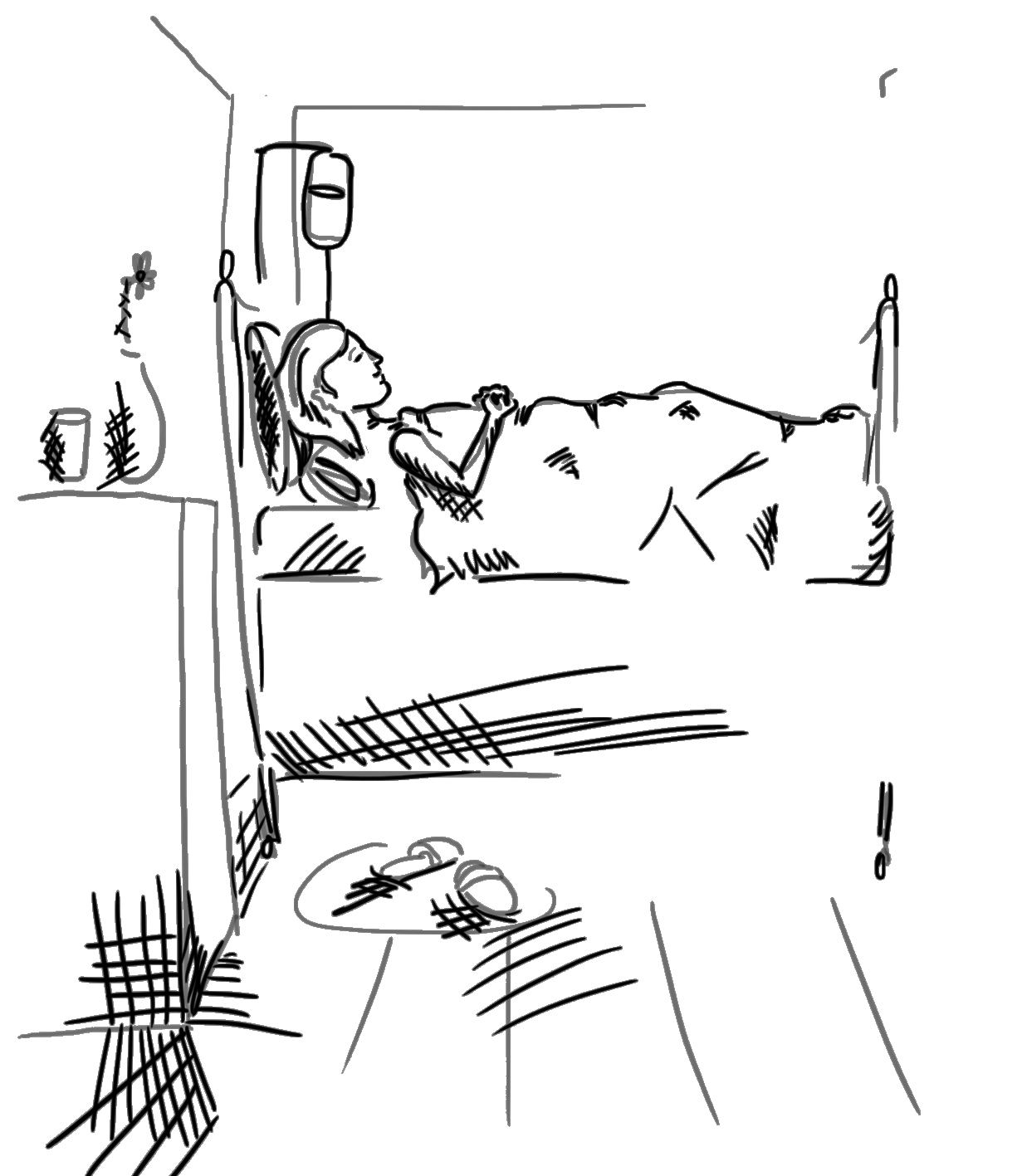
A recently published Yale study has revealed that hospice care for terminally ill patients may not provide adequate pain-management and family-counseling services before death because of the short amount of time that patients spend under full-time care.
Yale School of Medicine professor Thomas Gill, alongside other researchers at Yale Schools of Medicine and Public Health, studied older adults in the New Haven area over a 16-year period, with the goal of investigating the link between patients exhibiting painful symptoms, such as fatigue and depressive signs, and doctors then recommending that the patients be admitted to hospice. The researchers tracked the participants’ symptoms on a monthly basis and found that only 43.4 percent were admitted to hospice in their last year of life. The study, which was published on Sept. 12 in the Journal of the American Geriatrics Society, also found that the median hospice stay was 12.5 days.
“Sometimes, for persons in their 80s, having a conversation about death or dying is always welcome or does not come as a surprise,” said Gill, the senior author of the study. “Doctors can introduce the possibility of hospice as a more general discussion, but early on, for a disease such as cancer, there may be decisions to treat the cancer aggressively. Often these conditions don’t respond well to treatment, particularly in old age.”
Surveying 754 older people in community living, the study assessed disability through a variety of questions about their mobility, such as, “at the present time, do you need help from another person to (complete the task)?” and “Have you driven a car during the past month?”
The researchers identified admission to hospice by reviewing Medicare claims and information from death certificates, according to the study. They also used statistical probabilities to determine the role that age, living situation and number of disabilities played in admission to hospice. Eventually, researchers found that, while frailty and organ failure were the main causes of death in the study, cancer and dementia were most likely to lead to hospice admission.
“It is not easy to determine when someone has six months or less to live,” Gill said. “When you combine age with some of the serious conditions, you might expect that it would be easier to predict, but terminal conditions such as heart and lung disease are less predictable.”
Kenneth Covinsky, a professor at the University of California, San Francisco School of Medicine whose research was cited in the study, said he agrees with the study’s finding that the duration of hospice care is often too short for terminal patients and their families.
The study concluded that additional strategies are needed to address the burden of symptoms at the end of life, and Covinsky suggested that the solution may simply be focusing on alleviating a patient’s pain instead of driving forward for a cure.
John Cagle, a professor at the University of Maryland School of Social Work and a specialist in end-of-life care, echoed these sentiments, adding that physicians are often too optimistic about prognoses.
“In this field we are not doing a good job of prognosticating mortality,” Cagle said. “Even when people have chronic diseases we are still grasping at straws to predict when they’ll die. Many physicians don’t want to be wrong in their prognosis and tend to be overly optimistic in the long-term.”
Both Cagle and Covinsky pointed out several flaws in the study, including the fact that the test population consisted exclusively of older, relatively high-functioning adults in New Haven. Because the study was conducted over such a long period, Cagle added, it failed to account for changes in technology and medical care between 1998 and 2014.
Still, the study could have vast implications for the way that physicians approach hospice care and pain management in older patients, Gill said, adding that patients and doctors should discuss hospice care more openly early on in treatment.
According to Covinsky, doctors should place more emphasis on general pain management and palliative care in clinical environments, even outside of hospice.
The study was co-authored by professors and researchers Ling Han, Linda Leo-Summers, Evelyne Gahbauer, and Heather Allore.
Carolyn Sacco | carolyn.sacco@yale.edu .







